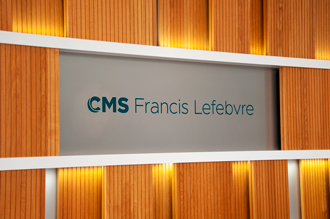
In response to the Covid-19 crisis, the European Commission has adopted a communication published in the Official Journal of the European Union (EU) of 26 March 2020 concerning foreign direct investment and free movement of capital from third countries and the protection of Europe's strategic assets, ahead of the application of Regulation (EU) 2019/452 (FDI Screening Regulation).
While providing guidance on the application of Regulation (EU) 2019/452, these guidelines are an opportunity for the Commission to review the emergency situation linked to the Covid-19 pandemic, its impact on Europe’s economy and industry and the responses required in relation to foreign investments in the European Union (EU).
In the context of this emergency, the Commission warns of the increased risk of attempts by third-country investors to acquire strategic EU industries, such as healthcare capacity or related activities.
In a communication dated 13 March entitled “A coordinated response to counter the economic impact of the COVID-19 outbreak”, the Commission had already called on Member States to use all the tools available at European and national level to avoid any loss of critical assets and technologies following the health crisis.
Here, the Commission encourages Member States more than ever to use appropriate screening tools and urges them to be vigilant to prevent the Covid-19 crisis from causing massive disposals of European companies and industries, including SMEs, particularly in the healthcare sector.
The mechanism for controlling foreign investments in France (codified in Articles L.151-3 et seq. and R.153-1 et seq. of the French Monetary and Financial Code), whose rules were tightened at the end of 2019, comes fully into force on 1 April 2020. This would appear to offer protection for essential infrastructure, goods and services, particularly in matters of public health (on this point see our article: “Foreign investments control in France").
The application scope of Regulation (EU) 2019/452 on FDI screening
Foreign direct investment (FDI) screening, within the meaning of the regulation, covers foreign direct investment from countries outside the EU and applies to all sectors of the economy.
No minimum threshold is specified for application of the regulation, which may apply to an operation whose financial value is relatively limited but which has major strategic importance (e.g. in the field of research and technology).
While calling on Member States to cooperate in controlling FDI, the Commission emphasises that they are ultimately responsible for examining and, if necessary, adopting measures to prevent FDI or make it dependent on the relevant security or public order requirements.
However, FDI likely to affect projects or programmes of interest to the EU will be subject to a detailed examination and an opinion from the Commission.
The role of FDI screening in a public health emergency
Member States may take measures to prevent foreign investment when it presents a threat linked to a public health emergency and, more generally, a threat to the security or public order in those States. Mitigation measures or commitments may enable FDI to be authorised, while mitigating risks to security or public order (for example, a minimum commitment to supply products).
As a reminder, among the factors to be taken into account to determine whether an FDI is likely to undermine security or public order, the FDI screening regulation mentions the effects on critical infrastructure, technologies and essential inputs (recital 13).
The Commission emphasises that Member States may, aside from screening mechanisms, have the ability to take measures in a national emergency such as a pandemic (for example, by obliging holders of patent rights on medicines to grant a licence).
What can third-country investors now expect in relation to investment screening in the EU?
Member States are invited to make full use of their FDI filtering mechanisms to address “risks posed to critical healthcare infrastructure, the supply of critical inputs and other essential sectors.”
French control of foreign investment, although it covers a broader scope than the regulation, since it also applies to investments made by EU investors, offers an effective mechanism, including during health crises. It makes any foreign investment subject to prior authorisation from the Minister for the Economy if it concerns an activity in France contributing, even occasionally, or relating to activities which could undermine public order, public security or interests of national security.
This mechanism therefore makes it possible in particular to control foreign investments in France in activities relating to essential infrastructure, goods or services, in order to guarantee:
- the integrity, security or continuity of operation of an establishment, facility or structure of vital importance within the meaning of Articles L.1332-1 and L.1332-2 of the French Defence Code;
- protection of public health.
A substantially amended version of our national screening framework, resulting from Decree no. 2019-1590 of 31 December 2019, must apply to authorisation requests made from 1 April 2020. The resulting list of activities is codified in Article R.151-3 of the French Monetary and Financial Code.
States which do not have such mechanisms, or whose mechanism does not cover all the relevant operations, are asked by the Commission to establish a comprehensive screening mechanism and, in the meantime, to immediately consider all options to address situations in which FDI poses a risk to health security and, more broadly, security or public order in the EU, in compliance with Union law and international obligations.
The Commission particularly emphasises the possibility of screening portfolio investments (acquisitions of minority interests not allowing an investor to exercise effective influence over the control and management of a company) and of limiting certain investments via special rights that Member States may hold in companies (“golden shares” or preference shares).
Reasons for restrictions on the movement of capital
This communication provides an opportunity to recall that restrictions may be placed on the free movement of capital provided they are justified, appropriate, necessary and proportionate to serve legitimate public policy objectives.
Reasons of public policy, public security and public health may justify such restrictions in the event of a real and sufficiently serious threat affecting a fundamental interest of society.
In the case of “predatory” acquisitions of strategic assets by foreign investors (those designed, for example, to limit the supply of certain goods on the EU market), protection of public order and public security could potentially justify the adoption of restrictive measures in order to guarantee security of supplies.
In the midst of the Covid-19 health crisis, European and national screening of foreign direct investment would therefore appear to present an effective means of protection against the risks presented to public health by certain acquisitions of assets and strategic capacities.
Insight: impacts of the Covid-19 outbreak
Our law firm provides you with legal assistance to understand all Covid-19 (Coronavirus) impacts on your business. Discover our special Insight below.
Find more about our law firm:
Our law firm is a leading international business law firm. Its deep roots, unique positioning and highly recognised expertise enables it to deliver innovative, high value-added solutions in tax, business, corporate and labour law.










